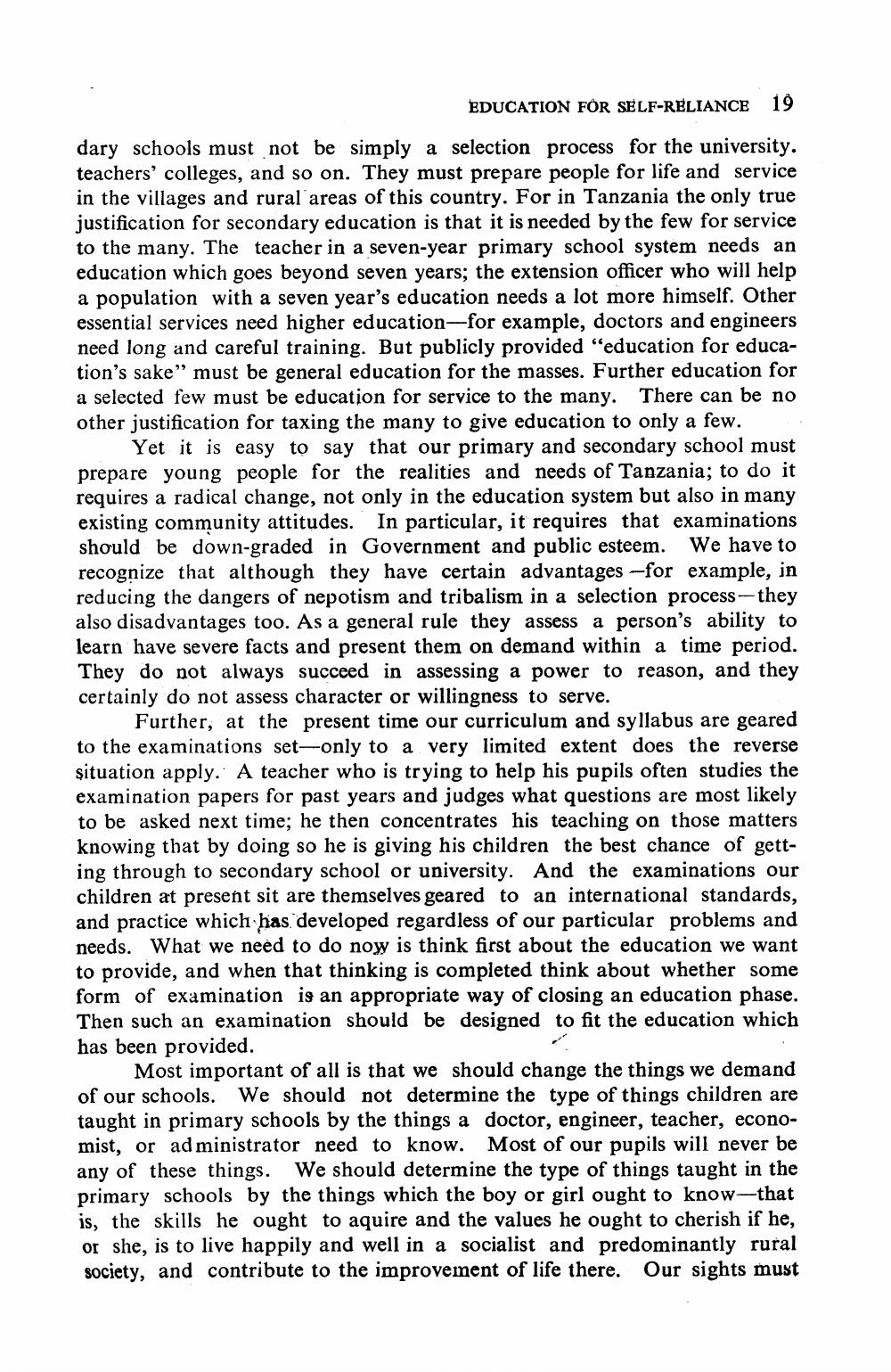________________
EDUCATION FOR SELF-RELIANCE 19
dary schools must not be simply a selection process for the university. teachers' colleges, and so on. They must prepare people for life and service in the villages and rural areas of this country. For in Tanzania the only true justification for secondary education is that it is needed by the few for service to the many. The teacher in a seven-year primary school system needs an education which goes beyond seven years; the extension officer who will help a population with a seven year's education needs a lot more himself. Other essential services need higher education-for example, doctors and engineers need long and careful training. But publicly provided "education for education's sake" must be general education for the masses. Further education for a selected few must be education for service to the many. There can be no other justification for taxing the many to give education to only a few.
Yet it is easy to say that our primary and secondary school must prepare young people for the realities and needs of Tanzania; to do it requires a radical change, not only in the education system but also in many existing community attitudes. In particular, it requires that examinations should be down-graded in Government and public esteem. We have to recognize that although they have certain advantages -for example, in reducing the dangers of nepotism and tribalism in a selection process-they also disadvantages too. As a general rule they assess a person's ability to learn have severe facts and present them on demand within a time period. They do not always succeed in assessing a power to reason, and they certainly do not assess character or willingness to serve.
Further, at the present time our curriculum and syllabus are geared to the examinations set-only to a very limited extent does the reverse situation apply. A teacher who is trying to help his pupils often studies the examination papers for past years and judges what questions are most likely to be asked next time; he then concentrates his teaching on those matters knowing that by doing so he is giving his children the best chance of getting through to secondary school or university. And the examinations our children at present sit are themselves geared to an international standards, and practice which has developed regardless of our particular problems and needs. What we need to do now is think first about the education we want to provide, and when that thinking is completed think about whether some form of examination is an appropriate way of closing an education phase. Then such an examination should be designed to fit the education which has been provided.
-
Most important of all is that we should change the things we demand of our schools. We should not determine the type of things children are taught in primary schools by the things a doctor, engineer, teacher, economist, or administrator need to know. Most of our pupils will never be any of these things. We should determine the type of things taught in the primary schools by the things which the boy or girl ought to know-that is, the skills he ought to aquire and the values he ought to cherish if he, or she, is to live happily and well in a socialist and predominantly rural society, and contribute to the improvement of life there. Our sights must




